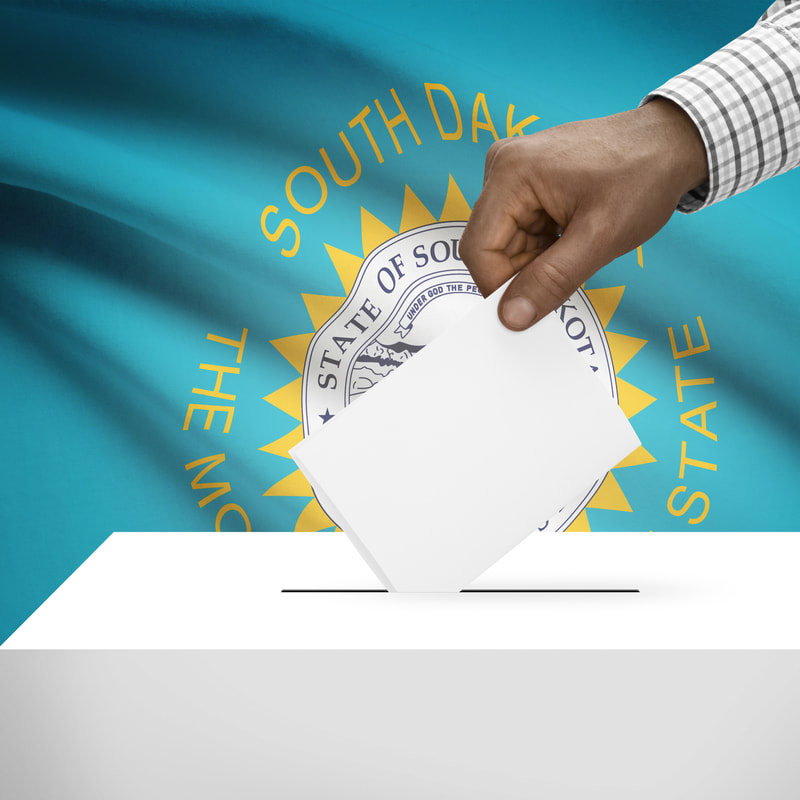|
Judge Needs Answers in SD County Voting Rights Suit A federal judge told a South Dakota county and a Native American tribe they have until Monday to come back with answers to six questions he has in an ongoing suit alleging Lyman County's electoral map violates the federal Voting Rights Act. U.S. District Judge Roberto A. Lange's questions, outlined in a Wednesday order, deal with such issues as whether the vendor that prints ballots and the software used in elections can accommodate certain ballot changes and if there's enough time before the November election to switch to a two-district system sought by the Lower Brule Sioux Tribe. Judge Lange said the questions are for clarity and in no way indicate what his final decision will be. After he receives both parties' responses Monday, the judge will issue an order on what changes should be made to a county commissioner system that the tribe claims reduces its representation. Judge Lange ruled Aug. 11 that the Lyman County at-large electoral system for the county's five-member Board of Commissioners race is likely a violation of the Voting Rights Act because it dilutes Native American votes. He ordered the county to come up with an alternative plan by Aug. 18. In its revised plan, Lyman County agreed to a new system that would give a new majority-Native district two seats on the board for the 2024 race. The county claimed any changes to the election process for this year were "unworkable," and in violation of the Purcell principle, which argues that court-ordered changes to rules just before an election could confuse voters and make it difficult for officials overseeing the election. During a hearing Tuesday regarding the county's new plan, the Lower Brule Sioux Tribe asked Judge Lange to either order the November commissioner race be taken off the ballot or to keep the ballot as is but block the county auditor from certifying the results. In Wednesday's order, Judge Lange said the quickest way to ensure that a Native-preferred member of the commission is elected in 2022 is to keep party affiliations of the candidates on the ballot and split the county into two districts. "The two Democrats with that party affiliation listed could run for a single commission seat with a four-year term in the Reservation district, and the four remaining candidates with their political affiliation listed could run against each other in the non-Reservation district for two commission spots with four-year terms," Judge Lange wrote in his order. The tribe sued Lyman County and its five-member board of commissioners in May, saying the county's at-large electoral scheme dilutes Native votes and should be scrapped immediately instead of later this decade, when the county planned to rework its districts. The tribe said that because of the county's longtime use of at-large voting, no Native American has ever been elected to the board of commissioners, despite making up nearly 40% of the local population. Counsel for the county and tribe did not immediately respond to requests for comment. Lyman County is represented by Sara Frankenstein and Richard M. Williams of Gunderson Palmer Nelson & Ashmore LLP. The Lower Brule Sioux Tribe is represented by Randolph J. Seiler of Randy Seiler Law Office LLC, Samantha B. Kelty, Michael S. Carter and Matthew Campbell of the Native American Rights Fund, Bryan Sells of The Law Office of Bryan L. Sells LLC, Tara Ford and Kathryn Eidmann of Public Counsel and John F. Libby and Sirena P. Castillo of Manatt Phelps & Phillips LLP. The case is Lower Brule Sioux Tribe et al. v. Lyman County et al., case number 3:22-cv-03008, in the U.S. District Court for the District of South Dakota.
0 Comments
Leave a Reply. |
HISTORY
April 2024
Categories |
© Walk 4 Change. All rights reserved.


 RSS Feed
RSS Feed